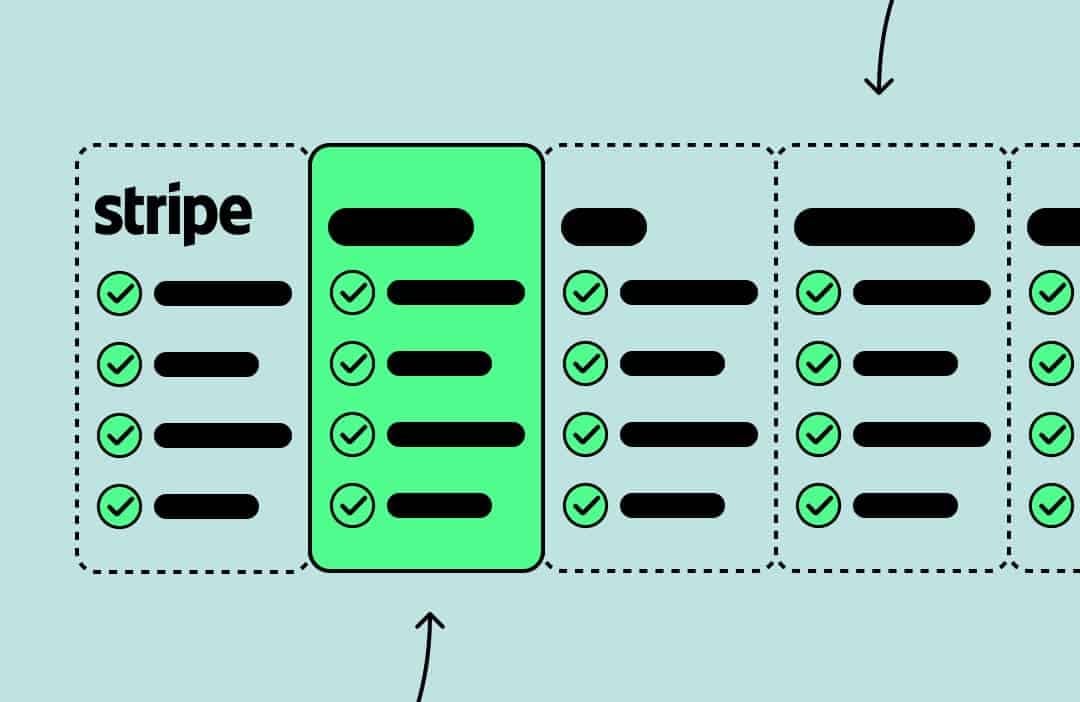The Ultimate SaaS Conferences Calendar!
Join today and pay no transaction fees for 60 days.
5 Best Stripe Alternatives for SaaS Billing and Invoicing

5 best Stripe alternatives for SaaS billing and invoicing:
Stripe is undeniably one of the most well-known payment processors in the market. In recent times, there has been a shift from traditional paper-based transactions to digital ones, and as a result, online payment processing has become an increasingly popular method of transacting. Online payment processing provides customers with the convenience of flexible payments, including cards, ACH, and other popular payment methods. Therefore, it’s not surprising that Stripe has become a top player in the industry, meeting the needs of customers seeking a trustworthy and effective way to process payments.
Stripe is certified as a PCI Level 1 Service Provider. This is the strictest level of certification available in the payments industry, and that ensures Stripe payments are safe. It has gained the trust of numerous well-known brands, such as Zoom, Atlassian, and Figma. At the same time, startups and small businesses around the world utilize the open Stripe API to create customized payment gateways, with Stripe earning a percentage of every transaction. However, Stripe is not a one-fits-all solution, so it is important to consider other SaaS billing software as Stripe alternatives.

Freebie
5-Step Guide on Revenue Growth for Bootstrapped & Seed Stage Startups in 2023
Stripe Top Features
- Stripe Billing: Allows you to create recurring invoices and subscriptions. Starting fee is 2.9%+30¢ per successful card charge.
- Stripe Invoicing: Gives you invoice up to 25 customers each month for free – after that the fee is 0.4% per paid invoice.
- Stripe Tax: Provides you with the platform’s tax calculation tools. The cost is 0.5% per transaction.
- Stripe Atlas: Helps you to set up a company within 10 min, sparing you the paperwork. The setup fee is $500.
- Stripe Sigma: Uses SQL for thorough analysis and reporting. The fee starts at 2¢/per charge+$10 infrastructure fee.

Stripe Pros
- Stripe is considerably less expensive than, for example, PayPal. It doesn’t have any extra fees for PCI compliance.
- The platform offers many options and integrations.
- Works on a pay-as-you-go pricing model.
- Extensive customization through tools, features and plugins for different companies, with an open API for developers.
- It is easy to start working with Stripe online with quick account signup.
Stripe Cons
- In case of a problematic transaction or technical error, you may need to resolve the issue before accepting any future payments.
- If you process a sham transaction, you might need to refund the transaction, which could result in a fee of up to $15.
- Stripe does not work with PayPal.
- If you do not have IT personnel or a friend to assist you with customizing Stripe, you may have difficulty setting up extra features.
- If a business processes a lot of transactions, it can be expensive to charge the same fee for all credit card payments.
Top Stripe Alternatives for SaaS
1. Braintree
Braintree is a payment processing platform that was acquired by PayPal in 2013. It offers a wide range of payment options, including credit cards, PayPal, and Venmo. Braintree’s pricing is similar to Stripe’s, with a flat fee of 2.59% + 49¢ per transaction.
Key features:
- Seamless Integration with PayPal
- Works in more than 45 countries and 130 currencies
- Data Security
- Transparent pricing
- Easy to integrate
Braintree Pros:
- Braintree offers advanced fraud protection to ensure secure transactions.
- It supports multiple payment methods, including credit cards, PayPal, Venmo, and more, providing flexibility for both customers and businesses.
- Braintree has an easy-to-use interface and provides well-documented APIs that can be integrated with ease.
- It offers customization options that allow businesses to personalize the payment experience according to their needs.
- Braintree as one of Stripe alternatives offers transparent pricing, with no additional fees for services such as recurring billing or card storage.
Braintree Cons:
- Braintree’s customer support can be slow to respond, which may result in delays when troubleshooting issues.
- It is not ideal for businesses that have a small number of monthly transactions, as it charges a minimum monthly fee, which can be costly for low-volume businesses.
- If you need reports, it will be necessary to subscribe to an additional analytics tool.
2. Recurly
Recurly is a subscription billing platform that offers a wide range of features, including flexible pricing models, customizable invoicing, and integrations with popular accounting software. Recurly’s pricing for 2023 is no platform fee plus first $40k/monthly in revenue included for 12 months for new self-service customers.
Key features:
- Automated invoicing
- Dunning management
- Several payment gateways
- Real-time analytics and reports
- Integrates with a wide range of third-party apps and platforms
Recurly Pros:
- Recurly offers a robust feature set for subscription management.
- It integrates with a wide range of popular business tools.
- Recurly offers a dedicated customer support team that helps customers with getting started, integrating, and ongoing customer service.
- It is PCI-DSS Level 1 compliant.
- Recurly is designed to scale with your business, so you can start small and add more features and functionality as your needs grow.
Recurly Cons:
- Recurly has a wide range of features and integrations, which can be overwhelming for some users.
- It only supports credit and debit card payments. Other payments are realized through partners.
- Customizing the checkout experience on Recurly can be harder than on other Stripe alternatives platforms like Chargebee or Stripe.
3. Chargify
Chargify is a subscription billing and revenue management platform that is designed for SaaS businesses. It offers a range of features, including multiple payment gateways, customizable invoicing, and dunning management. Chargify pricing starts at $599 per month for up to $75k in monthly billings.
Key features:
- Subscription management
- Revenue recognition
- Customer management
- Supports over 25 payment gateways
- Invoicing and tax management
Chargify Pros:
- Chargify includes features to help businesses recover lost revenue due to payment issues.
- It allows businesses to customize invoices and receipt templates.
- Chargify provides support for customers throughout their entire lifecycle.
- It is highly capable of managing complex billing plans.
- Chargify works great with a wide range of customers and multiple products.
Chargify Cons:
- Chargify offers a smaller selection of integrations.
- The platform is complex and difficult to navigate.
- Does not support PayPal and Apple Pay.
4. Fusebill
Fusebill is a subscription billing and management software designed for businesses of all sizes. With Fusebill, businesses can set up and manage multiple billing models, including recurring, usage-based, and hybrid models. Their pricing starts at $200 a month that includes $500k/yearly net invoiced revenue.
Key features:
- Flexible pricing and product catalog management
- Easy integration with third-party apps
- Self-service portal for customers
- Automated subscription management
- Complex revenue recognition models
Fusebill Pros:
- Fusebill has highly customizable billing and invoicing options.
- It provides a self-service customer portal that allows customers to manage their accounts, view invoices, and update payment information.
- Fusebill offers flexible pricing plans, including usage-based, one-time, and recurring billing.
- It has integration with multiple payment gateways and accounting software.
- Fusebill has strong reporting and analytics features.
Fusebill Cons:
- Fusebill can be difficult to learn, particularly for those who are not tech-savvy.
- It has limited customization.
- Fusebill can be expensive for small businesses.
5. Chargebee
Chargebee is a cloud-based payment solution that allows businesses to establish multiple billing models, such as recurring billing, one-time, or billing-per-usage. Their paid plans start at $249 per month for the Rise plan, which includes basic features and up to $600k in yearly revenue.
Key features:
- Workflow automation
- Integration with many core business systems and payment processors
- Aligning Go-To-Market (GTM) and finance processes
- High security compliance
- Easy billing customization
Chargebee Pros:
- Chargebee offers one-click account setup and customer management automation.
- It includes over 480 pre-designed templates for recurring billing solutions.
- It is feature-rich and undergoes regular updates every quarter to keep up with the latest trends and demands.
- Chargebee delivers a lot of flexibility through custom pricing plans, quote approvals, hierarchical accounts, and the ability to negotiate pricing.
- Chargebee provides great customer support from account managers and customer support.
Chargebee Cons:
- The interface is not very intuitive and mobile-optimized.
- Chargebee can be complex to set up and manage.
- The inability to view the total price before invoicing may result in chargebacks.
Bonus: Comfi
You can continue to use Stripe and still offer payment flexibility to your customers. Just add a Buy Now Pay Later (BNPL) provider to your checkout. Comfi is a BNPL solution for B2B SaaS startups and SMBs. It allows SaaS customers to spread the cost of annual subscriptions into 12 installments, while Comfi pays the whole sum upfront to the vendor within 7 days.
Key features:
- Seamless integration
- Fast onboarding
- Modern underwriting
- Simple qualification
- Intuitive UI
Comfi Pros:
- Pay as you go transactional model, fee applied on every transaction varying from 7-11% depending on the chosen repayment term.
- Self-serve checkout integration through API.
- No code dashboard – generating payment links takes couple of clicks.
- Increases conversion into annual plans.
Comfi Cons:
- No reconciliation with accounting software in place (coming soon)
- No integration with existing CRMs or billing software (coming soon)
- No customer dashboard to monitor payment schedule (coming soon)
Let’s talk your revenue together

Amal Abdullaev
Co-founder at Comfi
The Bottom Line
Stripe is widely recognized as one of the most popular payment processors, but it may not be the ideal choice for every business. That is why exploring some of the Stripe alternatives is equally important. We hope that this list can help you make the most appropriate choice for your B2B SaaS business, whether you’re starting a SaaS startup or scaling up. Billing is a critical aspect of running such a business, and having the right tool can make a significant impact.
Join our community of 2000+ revenue nerds
Stay updated on the latest industry trends, exclusive insights, and expert tips on maximizing revenue.
%202.png?alt=media&token=13969aaa-32cb-4a6e-a9ad-0ab937142910)